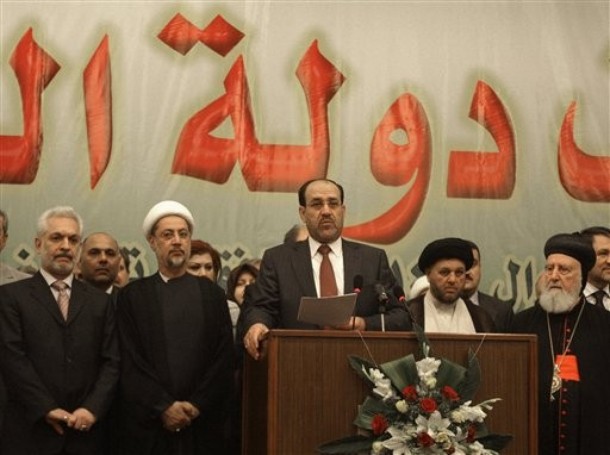Is Iraq a Natural U.S. Ally?

In the course of teeing off on Joe Klein's gloss on Charles Krauthammer's article on America's supposed decline, Peter Wehner ventures into some interesting territory regarding the foreign policy preferences of a sovereign Iraq. Klein took issue with Krauthammer's assertion that:
In Iraq, a determination to end the war according to rigid timetables, with almost no interest in garnering the fruits of a very costly and very bloody success--namely, using our Strategic Framework Agreement to turn the new Iraq into a strategic partner and anchor for U.S. influence in the most volatile area of the world. Iraq is a prize--we can debate endlessly whether it was worth the cost--of great strategic significance that the administration seems to have no intention of exploiting in its determination to execute a full and final exit.
Klein finds such a sentiment redolent with neo-colonial hubris:
A prize! Sounds sort of like Churchill in his most demented colonial moments: India, the jewel in the crown! (The fact that a duly elected Iraqi government wants us to leave is ignored.) Krauthammer’s sort of imperialism–a brutal and patronizing neo-colonialism–has never sat well with the American people.
Then along comes Wehner with this rather interesting argument:
What Krauthammer is championing is not some kind of imperial exploitation; rather, he is in favor of the elected government of Iraq cooperating with the United States in order to fight terrorism and counteract the disorders in the Middle East. (Only a simpleton would believe that withdrawing troops means an end to bilateral relations. Lots of nations work cooperatively with each other even when they do not have combat troops deployed in each-other’s territories.)
Now, unlike Wehner, I don't pretend to know what the geostrategic preferences of a truly sovereign and independent Iraq would be. There's an obvious incentive for Iraq to maintain friendly relations with the U.S., particularly while its governing institutions and security services are still weak. But there are also countervailing factors, such as its strong and friendly ties to Iran and whatever lingering hostility there is among the country's Sunnis toward the United States.
None of this is terribly difficult to understand - even for the simpletons of the world. Nor is it difficult to understand that Krauthammer is basing his "Iraq-as-strategic-prize" argument not simply on a free trade pact between the U.S. and Iraq but on the hope that the U.S. can maintain military installations in the country. And who knows, perhaps being a forward leaning regional ally of the United States is what a sovereign Iraq really desires. My reading of the Status of Forces Agreement signed by the Bush administration and the reports of how that agreement came to fruition, certainly do not lend credence to such an idea. But maybe Wehner knows something about Iraq's strategic thinking that I don't.
More likely, I suspect that Krauthammer means what Klein took him to mean - that the U.S. forge a "cooperative" Iraq by continuing to wade into Iraq's politics, make an end run around the SOFA and bolster factions which support America's regional ambitions and marginalize those that don't. That's not full blown, British Empire-style colonialism, but it isn't a business-as-usual bilateral relationship either (at least, not outside the Middle East).
(AP Photos)





